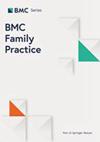Clinical and surgical physician’s perception of nutrition knowledge
IF 3.2
3区 医学
Q1 MEDICINE, GENERAL & INTERNAL
引用次数: 0
Abstract
Due to the significant increase in the prevalence of food-related diseases, the value that physicians place on nutritional advice may have implications for patient treatment. The objective of this study was to evaluate the perception of the importance of nutritional intervention among physicians in the Universidad San Francisco de Quito’s (USFQ) healthcare system. This cross-sectional study employed a telephone survey administered to a subset of all medical doctors (MDs) working in the healthcare system clinics of USFQ between 2021 and 2022. Study participants were recruited through voluntary response sample from a complete list of 253 MD. The single time questionnaire consisted of a 22-item validated survey in which attitudes, self-perceived capacity, and knowledge about nutrition ofmedical doctors were evaluated. Data was analyzed using descriptive statistics, two-sided t test, bivariate associations and linear and logistic regressions. 136 MDs completed the survey yielding a response rate of 54%. Our analysis grouped participants into clinical (CE) and non-clinical specialties, hereafter referred to as surgical MDs. While a higher percentage of physicians in CE are confident in their ability to provide examples of recommended food portions based on national or international guidelines, 1 in 10 do not know how to use and interpret BMI or waist circumference, and around 1 in 3 do not know how many calories there are in one gram of fat, protein, or carbohydrates, and their basic metabolic functions. Almost all survey participants believe MDs can have an impact on the eating behavior of a patient if time is used to discuss the problem, however, almost half of survey participants believe nutrition counseling is not an effective use of time. It is important to explore the perceptions and self-confidence of physicians around nutrition related issues. Our results demonstrated that nearly 1 in 4 surgical MDs do not feel capable of recognizing nutritional risk in patients, which highlights the essentiality of physicians having an updated understanding of basic nutrition principles. Future research should examine how commonly MDs refer patients to nutritionists/dietitians, as well as strategies for improving physician knowledge on basic nutrition concepts.临床和外科医师对营养知识的看法
由于与食物有关的疾病发病率大幅上升,医生对营养建议的重视程度可能会对患者的治疗产生影响。本研究旨在评估基多圣弗朗西斯科大学(USFQ)医疗系统中医生对营养干预重要性的认识。这项横断面研究采用电话调查的方式,对 2021 年至 2022 年期间在基多旧金山大学医疗系统诊所工作的所有医生(MDs)进行调查。研究参与者是从完整的 253 名医学博士名单中通过自愿应答抽样招募的。一次性问卷由 22 个有效项目组成,对医生的态度、自我认知能力和营养知识进行评估。数据分析采用了描述性统计、双侧 t 检验、双变量关联、线性回归和逻辑回归。136 名医学博士完成了调查,回复率为 54%。我们的分析将参与者分为临床(CE)和非临床专业,以下简称外科医学博士。虽然有较高比例的临床医学医生对自己有能力根据国家或国际指南提供推荐食物份量的例子充满信心,但每 10 位医生中就有 1 位不知道如何使用和解释体重指数或腰围,大约每 3 位医生中就有 1 位不知道 1 克脂肪、蛋白质或碳水化合物中含有多少卡路里以及它们的基本代谢功能。几乎所有参与调查者都认为,如果利用时间讨论问题,医学博士可以对患者的饮食行为产生影响,然而,几乎一半的参与调查者认为营养咨询不能有效利用时间。探讨医生对营养相关问题的看法和自信非常重要。我们的研究结果表明,近四分之一的外科医学博士认为自己没有能力识别患者的营养风险,这凸显了医生对基本营养原则有最新了解的重要性。未来的研究应探讨医学博士将患者转介给营养师/营养师的常见程度,以及提高医生对基本营养概念的认识的策略。
本文章由计算机程序翻译,如有差异,请以英文原文为准。
求助全文
约1分钟内获得全文
求助全文
来源期刊

BMC Family Practice
医学-医学:内科
CiteScore
3.20
自引率
0.00%
发文量
0
审稿时长
4-8 weeks
期刊介绍:
BMC Family Practice is an open access, peer-reviewed journal that considers articles on all aspects of primary health care research. The journal has a special focus on clinical decision making and management, continuing professional education, service utilization, needs and demand, and the organization and delivery of primary care and care in the community.
 求助内容:
求助内容: 应助结果提醒方式:
应助结果提醒方式:


